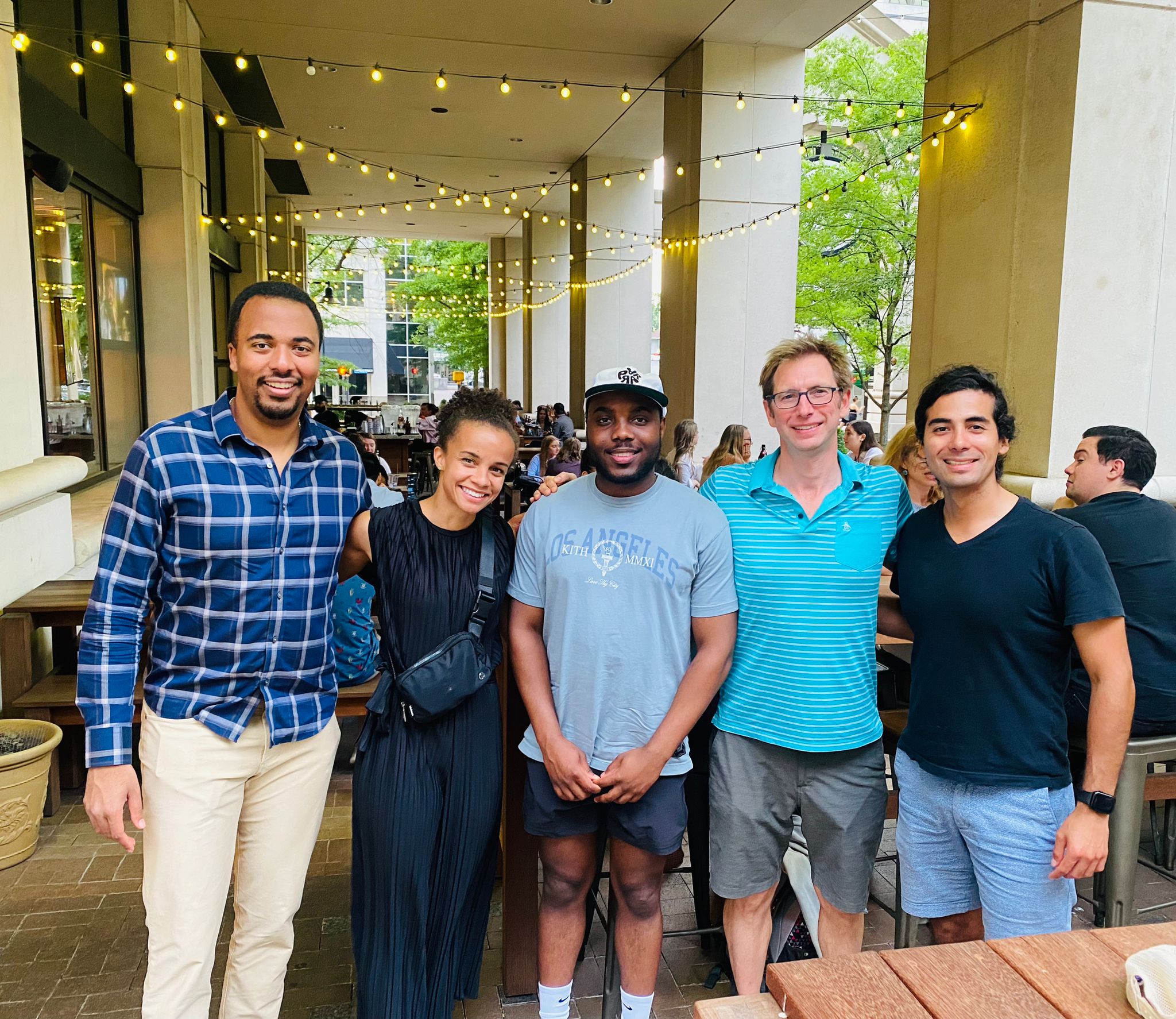Diversity and Inclusion in Angel Investment: Building Equitable Innovation Ecosystems
.png)
Brian Nichols is the co-founder of Angel Squad, a community where you’ll learn how to angel invest and get a chance to invest as little as $1k into Hustle Fund's top performing early-stage startups
Investors use their life perspective to assess startup ideas. For this reason, we need more funders with more varied life perspectives.
This isn't a feel-good statement. It's about economics. When everyone in a room has the same background, they all see the same opportunities. They all miss the same things. The companies that get overlooked aren't bad ideas. They're just ideas that don't match the pattern recognition of the people holding the money.
The Information Access Problem
Here's a concrete example. The number one thing Hustle Fund believes is that great founders can look like anyone and come from anywhere. Based on circumstances beyond their control, many entrepreneurs are missing the tactical knowledge to build an investor network and raise money. That's not a talent problem. It's an information access problem.
When you look at who gets funded, the patterns are stark. Warm referrals yield 80-90% of all done deals at most funds. If you don't have a network, you don't get warm referrals. If you don't get warm referrals, your odds of getting funded drop dramatically. This isn't because cold pitches are worse quality. It's because the system is set up to favor people who already have access.
One founder in Hustle Fund's portfolio didn't have a network and didn't know investors from before. He only moved to the US relatively recently. For many months, Hustle Fund was basically the only institutional investor plus a few angel friends who wrote small checks. Then in one round, he brought in multiple investors and raised $1.5 million in 48 hours. The fastest raise Hustle Fund had ever seen.
What changed? He built the network he didn't start with. But that takes time and someone willing to be the first check when you have zero social proof.
Geography Is Everything Now
The geography piece is massive. Five years ago, it seemed weird or impossible to have portfolio companies in Asia selling globally or Southeast Asian companies selling to the US. Today, this makes a lot of sense for the right business. There's no clear cut geography anymore. Founders who can navigate this new way of hiring, managing remotely, and selling remotely are at a serious advantage.
But here's the problem. Most US angels don't look at companies outside their immediate geography. They don't understand the arbitrage opportunities in other markets. They don't know how to evaluate founders operating in different regulatory environments. So these companies go unfunded or get picked up by local investors at lower valuations.
Pattern Recognition Blindness
The definition of a "good startup idea" is really in the eyes of the beholder. VCs often ask about moats. To Hustle Fund, it's a silly question at the earliest stages because you have no moat in the beginning. But what can it become if everything went well? How can you keep competition out?
This is why a lot of e-commerce companies get overlooked. Investors are afraid there is no moat. Seems too easy to spin up a copycat overseas and compete on cost. Even Amazon will compete with you. You have to explain how you will build a moat over time.
Stitch Fix is an interesting case study. They were overlooked a lot. People saw them as a copyable e-commerce company. But from day one, they collected data on what clothes customers liked and what they returned. They got better at recommendations. This is what investors missed.
When you have varied perspectives in a room, someone might have recognized that pattern earlier. Someone might have understood the customer segment better. Someone might have seen the data moat building in real time.

Community and Mental Health
Building community helps. Founder communities that are at the same stage show up in many places these days: accelerators, cohort-based courses, coworking spaces, other portfolio companies of a shared investor. Communities also keep you accountable. It's lonely being a founder. You have all these problems and they are all in your head. The weight of the world can feel isolating. Your family, friends, and partner won't understand. You can't always share details with your team.
This is where diversity in investor networks creates real value. When your investor has walked a similar path or understands the market you're building in, they can provide moral support that actually helps. Doing a startup is all about morale control. In the beginning, morale is so high because of sheer excitement. Later, you make progress but morale often drops. People's spirits are not always correlated with absolute progress in the business. They're correlated with how they feel.
Investors can impact how founders feel for better or worse. The things that matter most are: how are founders doing as people? You can't even think about building a great company if you're falling apart yourself. How can you help make a situation more positive even if it's crappy? At least try to do that.
The mental health piece ties directly into diversity and inclusion. Many founders face co-founder deaths, illnesses, or family health issues. Even if everything is going well in the business, this is incredibly common and often leads to company shutdowns. If you meet founders who have faced extreme adversity and emerge stronger, you should definitely offer to invest.

The Structural Problem With Capital Flow
There's a structural issue with how venture capital flows. Established funds have no problems raising. But most new funds who often invest early are also backed by angels. When public markets crash and angels see their net worth dropping, they're less likely to invest in startups. This means fewer new funds, which means less diversity in who's writing checks.
What Angels Can Actually Do
The status quo needs to change. Angels who want to build more equitable ecosystems should focus on:
Expanding your network beyond your immediate geography and background. Make an effort to meet founders building in markets you don't understand.
Being the first check for founders without existing networks. Someone has to break the cold start problem.
Sharing tactical knowledge. Most of the information asymmetry in fundraising is completely fixable by just explaining how things work.
Building inclusive founder communities where people at the same stage can support each other. The camaraderie matters more than you think.
Understanding that "good ideas" are often just ideas you have pattern recognition for. If you can't see why something is interesting, that might be a you problem, not a founder problem.
For those building toward more equitable innovation ecosystems, it's not about lowering standards. It's about recognizing that the current system has blind spots that cause us to miss great opportunities. The arbitrage is in finding the founders everyone else overlooked. That's where Angel Squad comes in, building a community that deliberately expands networks beyond traditional venture capital circles and ensures that great founders from anywhere can access the capital and knowledge they need to build successful companies.













